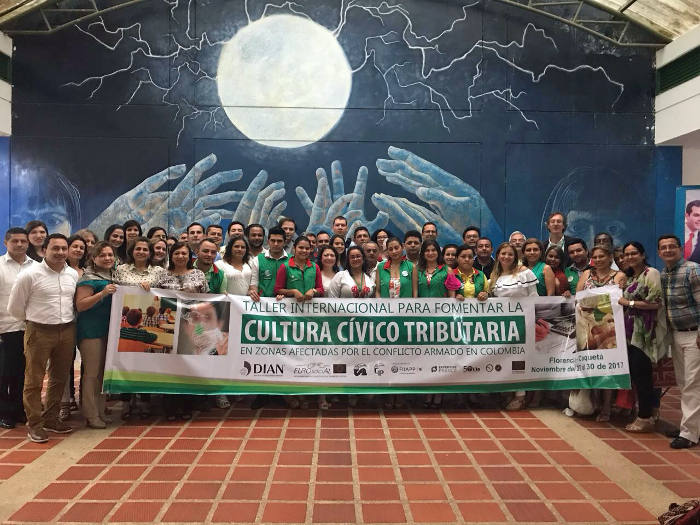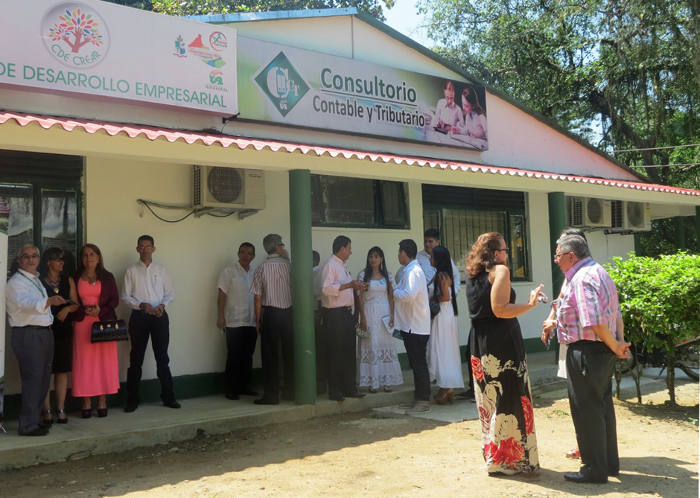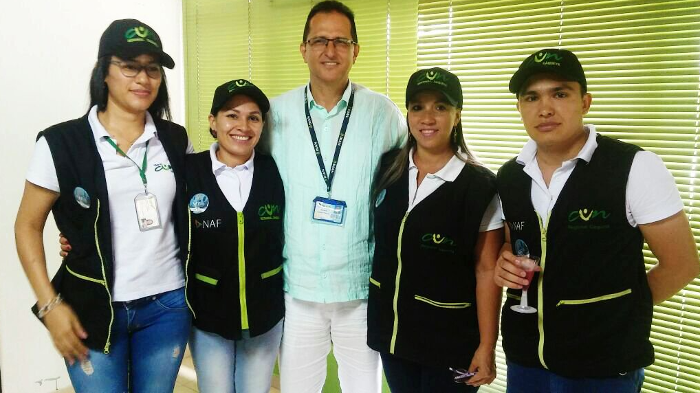-
15 March 2018
Category : Opinion
Taxation, the state and the public in the labyrinth of the post-conflict (II)
Education is a key factor in transforming the tax culture in those regions most seriously affected by the armed conflict. We continue our journey with EUROsociAL+ in Caquetá (Colombia)
 Participants at the workshop on tax culture
Participants at the workshop on tax cultureThe National Taxes and Customs Directorate (DIAN) in Caquetá knows that coercion will not get it anywhere, what it needs to do is convince. With only ten auditors, there is no way it can be breathing down every taxpayer’s neck. It needs to build bridges. It needs carrots as well as sticks.
The tax incentives created to promote formalisation and investment must therefore be accompanied by better tax information and assistance for citizens, as well as a good dose of education on the social purpose of taxes and public spending. Teaching children about taxes from an early age can make this process sustainable, and over the long-term, contribute to voluntary compliance with tax obligations.
For several years, the DIAN has been promoting meetings with children and young people on tax culture in schools in Caquetá and it holds tax services events to raise awareness of its role and get closer to the public. New opportunities are arising to consolidate and multiply these efforts through universities in the form of the Tax Assistance Hub project (NAF in its Spanish acronym).
University as a bridge between the DIAN and citizens
Last November, EUROsociAL+ – the European Union’s regional cooperation programme with Latin America – organised a workshop at the University of the Amazon in Florence dedicated to promoting post-conflict tax culture strategies. It was attended by tertiary education institutions and DIAN sections from the Areas Most Affected by the Armed Conflict in Colombia (Zomac).
The University of the Amazon is a unique institution. It is the only public university in Caquetá. It is strongly committed to the peace process, the environment and sustainable development.
Its Public Accounting Programme has joined the post-conflict challenge by creating a Tax Assistance Hub (NAF), an information point where university students give free tax and accounting advice to people with low incomes and micro entrepreneurs.

NAF at the University of the Amazon Trained by the tax administration, the students dedicate as much time as necessary to citizens, listening to their problems and concerns. They generate trust and help them understand the tax system and improve their small businesses.
NAFs are a bridge between the DIAN and the public. This experiment, devised in Brazil, is now present in more than 450 universities in 10 countries. In Colombia, 43 universities have joined, 20 of them in ZOMAC areas.
In the past 4 years, EUROsociAL has been supporting the expansion of this initiative by sharing experiences. The workshop in Florencia gave the opportunity to share lessons learned that can be applied to the post-conflict.
Young people as drivers of change
Hernando Vásquez, District Director with the DIAN sees the NAFs as a way for young people to transform the current situation: “The NAFs are an opportunity to generate trust in the tax administration and create civic awareness about taxes. What better way to give future accountants, administrators and lawyers a real view of what is happening?”.
The students attend campus every day and also visit business in Florencia and the surrounding municipalities. This allows them to see the reality of the post-conflict and the opportunities that peace brings for the development of the region.

Hernando with students from the NAFs One of the NAF students tells us about their experience: “Caquetá was badly affected by the armed conflict. We now have the opportunity to get to places that were inaccessible until now, and make Colombians from other regions and foreigners see that Caquetá wants to give the best of itself. Paying taxes means contributing to ourselves”.
And the student continues: “Business owners had the excuse that they shouldn’t pay taxes due to the armed conflict. But those excuses are no longer valid. We have gone to NAFs in some of the most difficult places such as San Vicente del Caguán or Cartagena del Chairá, where people are preparing for the law to be enforced more stringently. We need to show what taxes are used for and for farmers or businesspeople to see that taxes build roads to make their work easier”.
This reality is not alien to that of other areas affected by armed conflict, areas that share their experiences at the workshop. Natalia is another of the young people working in the NAFs in ZOMAC areas, in this case in Ibagué: “It’s really rewarding to help someone in need, someone who doesn’t know how to read or write, let alone use a computer, and for them to go away happy with their new knowledge“.
Borja Díaz Rivillas, Senior Expert in Democratic Governance for the EUROsociAL+ Programme
The views and opinions expressed in this blog are the sole responsibility of the person who write them.




